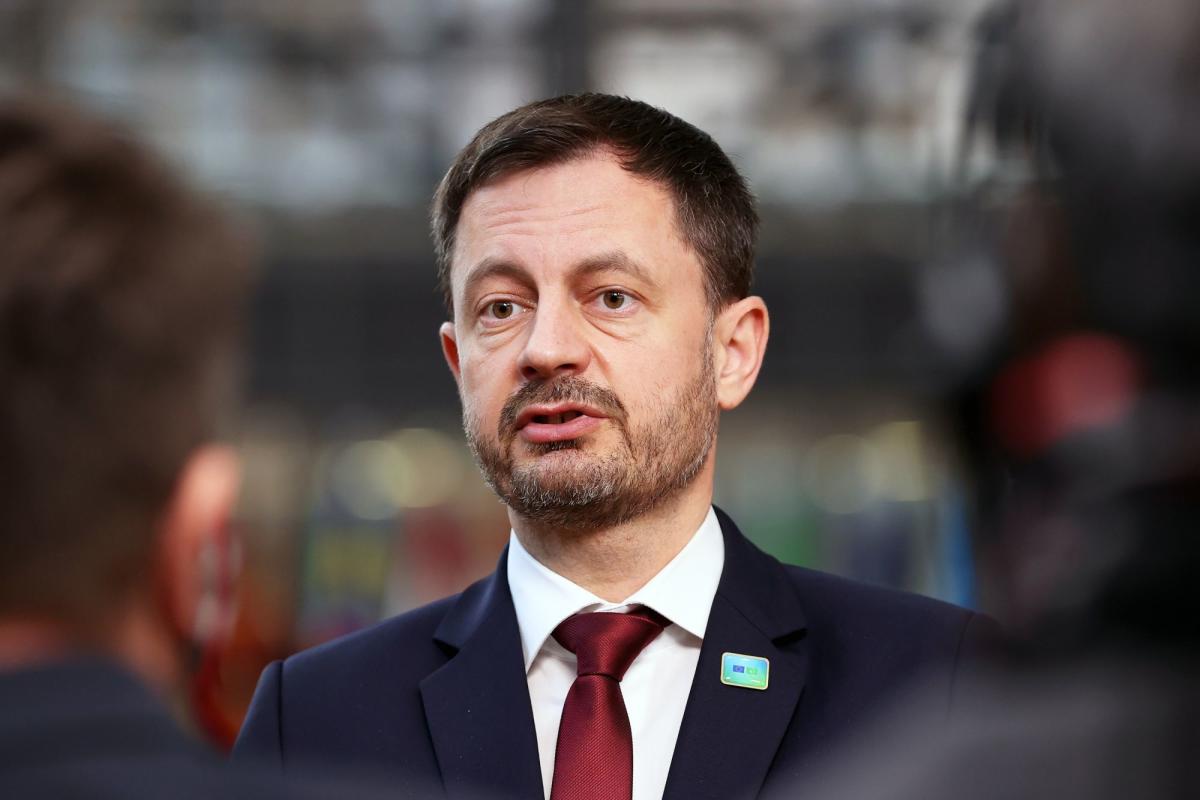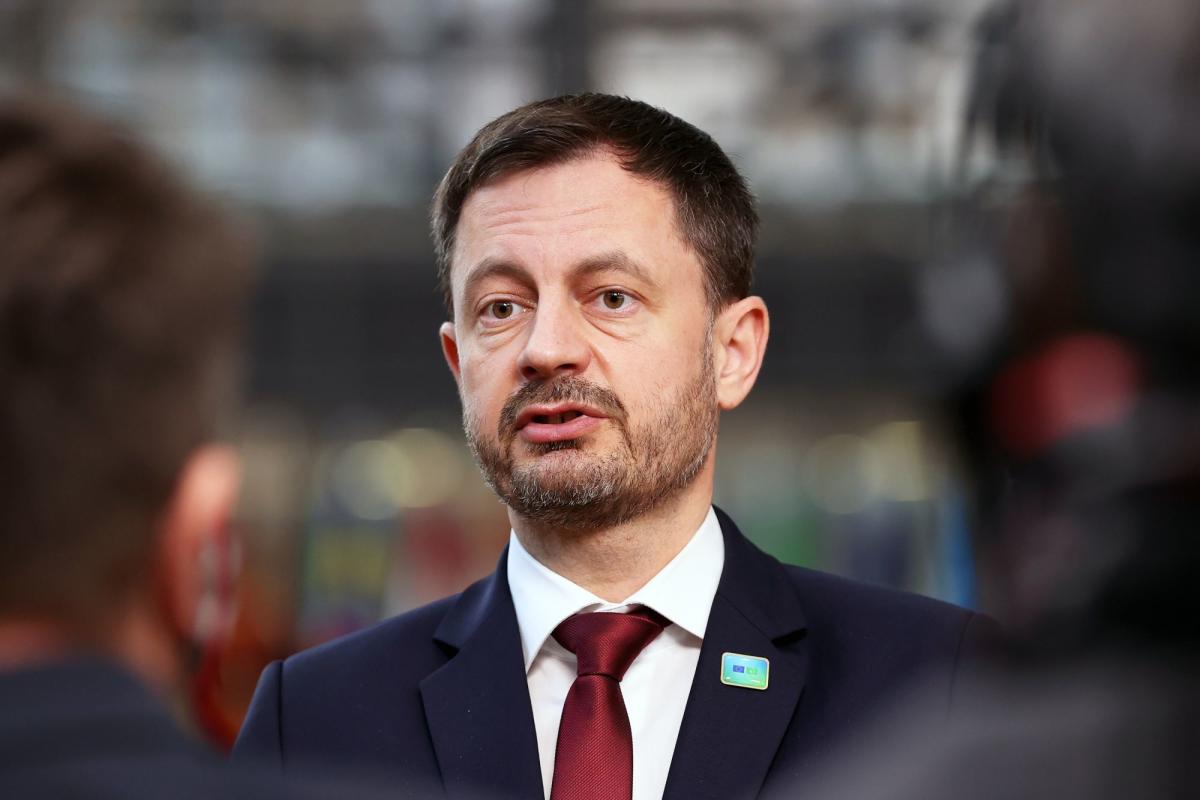
(Bloomberg) — The European Union faces a potential blow to its fragile unity after Slovakia’s government collapsed, plunging the nation into political turmoil and raising the prospect of a snap vote.
Most Read from Bloomberg
As the EU member state of 5.4 million lurches toward an early election, opinion polls show political forces in the lead who have shown skepticism for backing Ukraine — including one former premier who has openly opposed sanctions against Russia and linked himself with Hungarian Prime Minister Viktor Orban and his democratic backsliding.
Slovakia’s president, Zuzana Caputova, is expected to dismiss the government on Friday, a day after a no-confidence motion initiated by a former coalition partner was approved by a majority in parliament. Interim options include appointing a new cabinet, but consensus is moving in favor of holding a snap ballot as early as spring.
“An early election would see support for Ukraine’s war effort hang in the balance,” Capucine May, an analyst at risk intelligence firm Verisk Maplecroft, wrote in an initial analysis.
Topping the polls are two parties led by former prime ministers, Peter Pellegrini and Robert Fico. While frontrunner Pellegrini has been more ambiguous on his stance on mainstream EU issues, Fico — a three-time premier who was forced to step down in 2018 after the murder of a journalist investigating corruption — has vowed to stop weapons deliveries to Ukraine and provide only humanitarian assistance.
Fico’s Social Democrats have rebounded from record low support last year and ranks second, as the populist former leader has derided the outgoing government as Slovaks face a grueling cost-of-living crisis and soaring inflation.
Pellegrini, once Fico’s deputy, is in the lead with his Voice party — and would have the option of forming an array of alliances, including with Fico or right-wing forces. He welcomed the government’s collapse on Thursday.
“It’s the nicest present under the Christmas tree for Slovaks,” Pellegrini wrote on Facebook after the parliamentary vote.
Holding an early election would require a constitutional amendment with the backing of three-fifths of the parliament’s legislators, since Slovakia’s system doesn’t envision a curtailed legislative period.
“The president expects us to amend the constitution to allow the shortening of parliament’s tenure by the end of January,” parliament Speaker Boris Kollar told TV JOJ late Thursday. “If not, she will appoint a caretaker government of technocrats.”
Early elections could be held by June at the latest, he said. The assembly should vote on an amendment that would allow early elections next week, he said.
The Slovak government under Prime Minister Eduard Heger’s party swept into office two years ago on a platform of rooting out corruption after the Fico-era scandals. But its leadership through the pandemic and the war in neighboring Ukraine has been overshadowed by constant infighting, often centering on party leader Igor Matovic, the finance minister.
At the same time, anti-western sentiment — accompanied by vaccine skepticism and pro-Russian disinformation on social media — has undercut support for the EU and NATO. One recent poll showed that only about half of Slovak citizens believe that Russian aggression is to blame for the war in Ukraine — and that Russia was more trustworthy than the US.
Most Read from Bloomberg Businessweek
©2022 Bloomberg L.P.




